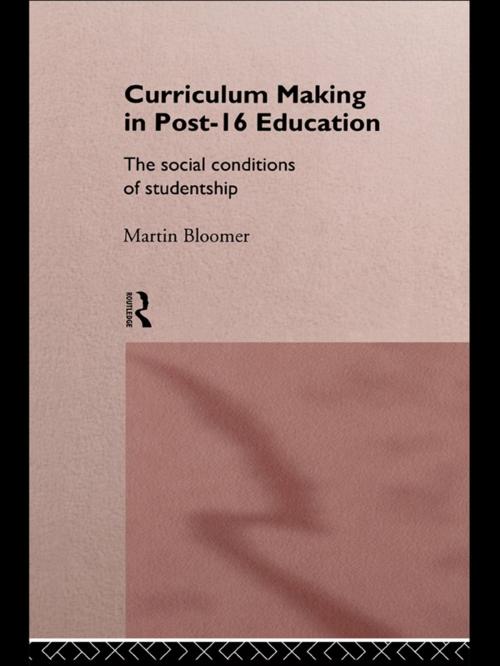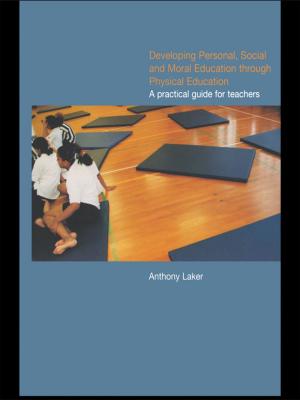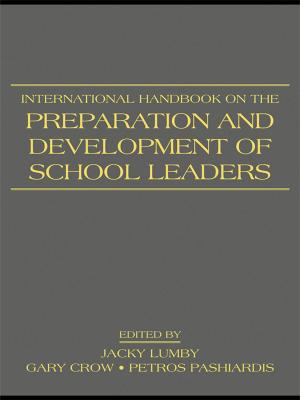Curriculum Making in Post-16 Education
The Social Conditions of Studentship
Nonfiction, Reference & Language, Education & Teaching| Author: | Martin Bloomer | ISBN: | 9781134810420 |
| Publisher: | Taylor and Francis | Publication: | March 11, 2002 |
| Imprint: | Routledge | Language: | English |
| Author: | Martin Bloomer |
| ISBN: | 9781134810420 |
| Publisher: | Taylor and Francis |
| Publication: | March 11, 2002 |
| Imprint: | Routledge |
| Language: | English |
It is widely agreed that the post-16 curriculum in England and Wales is inadequate, mainly due to the successive reforms of various governments.
YTS was a reaction to problems of youth unemployment, CPVE and BTEC embraced a 'broad' concept of vocationalism, and even with the introduction of NVQ and GNVQ the A-level retains its gold-standard in the eyes of many. The post-16 curriculum that has emerged is hardly coherent. So how can teachers translate an externally imposed curriculum into a meaningful learning experience for students?
Drawing on solid research in post-16 education, this book makes explicit the nature of flaws in policy, and provides an account of how teachers and students construct their roles. It puts forward the case for a radical reappraisal and identifies appropriate aims and organising principles for a post-16 curriculum for the future.
Martin Bloomer is currently Dean of the Faculty of Education at Exeter University.
It is widely agreed that the post-16 curriculum in England and Wales is inadequate, mainly due to the successive reforms of various governments.
YTS was a reaction to problems of youth unemployment, CPVE and BTEC embraced a 'broad' concept of vocationalism, and even with the introduction of NVQ and GNVQ the A-level retains its gold-standard in the eyes of many. The post-16 curriculum that has emerged is hardly coherent. So how can teachers translate an externally imposed curriculum into a meaningful learning experience for students?
Drawing on solid research in post-16 education, this book makes explicit the nature of flaws in policy, and provides an account of how teachers and students construct their roles. It puts forward the case for a radical reappraisal and identifies appropriate aims and organising principles for a post-16 curriculum for the future.
Martin Bloomer is currently Dean of the Faculty of Education at Exeter University.















